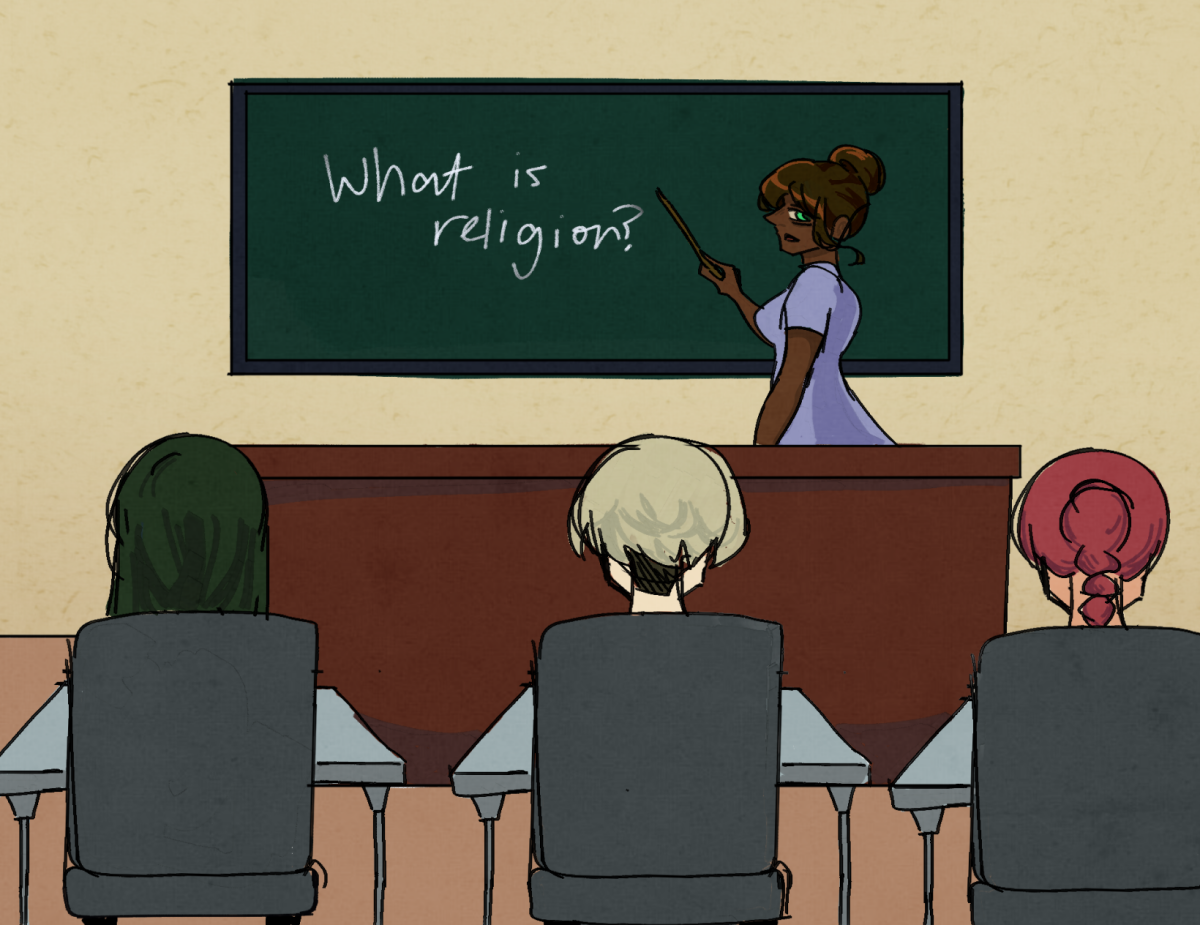Religious studies is one of the 60-plus majors within the College of Humanities and Social Sciences, combining disciplines with the philosophy department, to offer one of the most diverse programs at NC State.
For 25 years, Jason Bivins, a professor and the director of the religious studies program, has worked on providing spaces and crafting a delicate balance between various religious viewpoints for students.
Bivins said the first thing to recognize about the religious studies program is its ability to not commit to a particular religion’s teachings.
“At a public university, the first thing to know is that the study of religion is not committed to a particular religious point of view or opposed to a religious point of view,” Bivins said. “We think of ourselves as conducting research and teaching in much the same way as any other discipline. We’re fascinated by the enduring human phenomenon of religion. We want to figure out what makes it tick, what shapes it takes, how it changes and how it stays the same.”
The program first started in the late 1960s as a concentration in the philosophy department that focused mainly on theological practices. It wasn’t until the late 1980s that the concentration became more independent, creating its new identity as a separate major.
Today, Bivins said the department is at its strongest ever in terms of the number of faculty and productivity.
This growth drew in Griffin James, a fourth-year studying religious studies, who started his academic career as an environmental science major. He said the religious studies department offered more diverse skills to help understand the skill of connecting religion to modern-day issues.
“You need to be able to connect, and you need to be able to experience and understand why it is so pivotal for some people,” James said. “And learning how to connect better has been one of the biggest skills.”
James said the importance of recognizing the program on college campuses is to help define a better understanding of what religion is, which is integral in understanding global issues.
“I would argue it’s especially important not only within CHASS but within the religious studies department itself because religion is a global thing,” James said. “So if we all come at it with the same perspective and understanding of what religions are from a Christian perspective, which is usually the perspective we take when we analyze religions whether you’re a major or not, it helps challenge the established understanding of what religion is.”
Aside from skillsets, James said the department makes it a top priority to consider student opinions and value what is coming next to the department.
“Last semester, we had a faculty member leave the department, so they were looking for a replacement, and they really engaged with the students to see who would be the best fit,” James said. “I can’t think of any other department really doing something similar.”
The department is not set aside for CHASS majors alone. It encourages STEM students to participate in bringing new perspectives.
“I get a lot of STEM students, but they’re usually highly motivated,” Bivins said. “Motivation is rarely an issue, whether it’s a STEM student or a humanities and I, for one, appreciate the different learning perspectives.”
Bivins said religious studies allows students to delve into several topics and not just the theological framework of religion but the critical aspects.
“This is where you learn the skills of dialogue and understanding, commonality and analysis,” Bivins said. “I genuinely believe that if we can do those things, if we can achieve those goals by studying religion, which is among the more sensitive and controversial subjects, then we’re really well-positioned to be able to do the same kind of thing in society in general. It’s citizenship training.”
The religious studies major also harbors several career choices. According to Bivins, while over one-third of his students are interested in ministry work, the majority achieve accomplishments in fields from law school to academia.
James said the department welcomes numerous religious backgrounds, which does not limit career options and learning.
“It’s equally diverse,” James said. “We have various people from various backgrounds coming in to take these courses, which is great because they all bring their perspectives.”
To Bivins, the most crucial factor for the department is not only teaching students how to critically think through primary and secondary texts but to apply these skills beyond the academic scope.
“I just think it’s increasingly apparent that if you want to understand anything about our current world or the past, religion is just always there,” Bivins said. “It’s always been there. It’s always going to be there. The intellectual journey is fun for its own purposes, but we really want to help students understand this fundamental component of human life with the goal that we can all hopefully get out of this place being a little more compassionate.”













